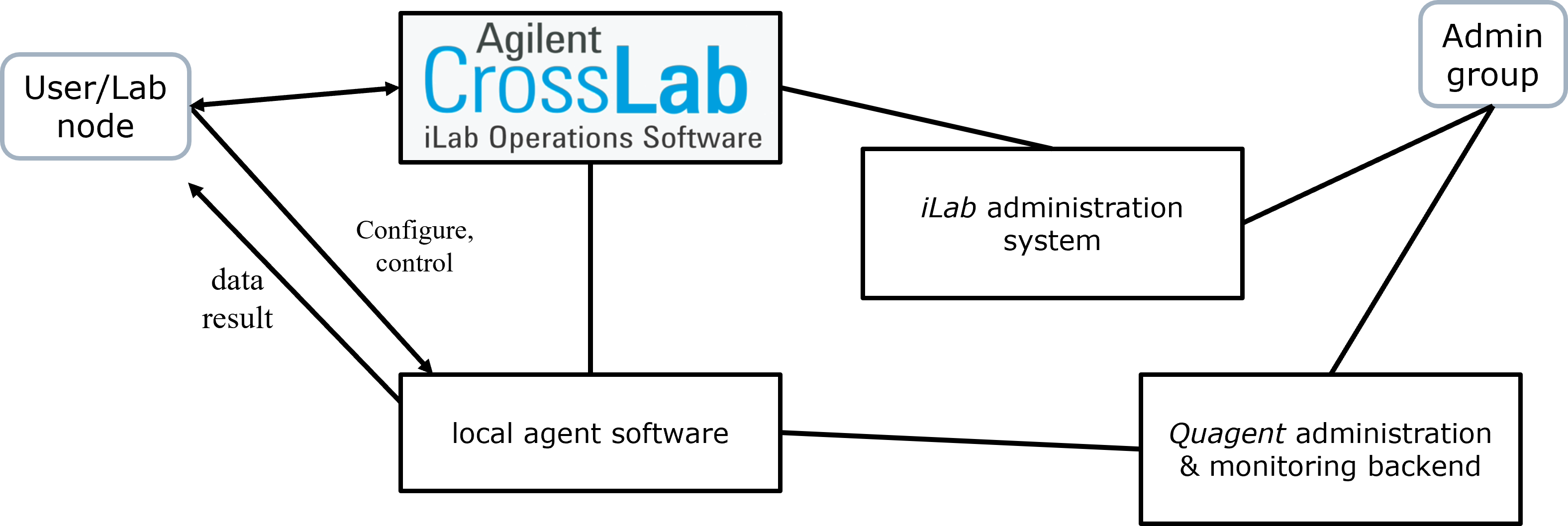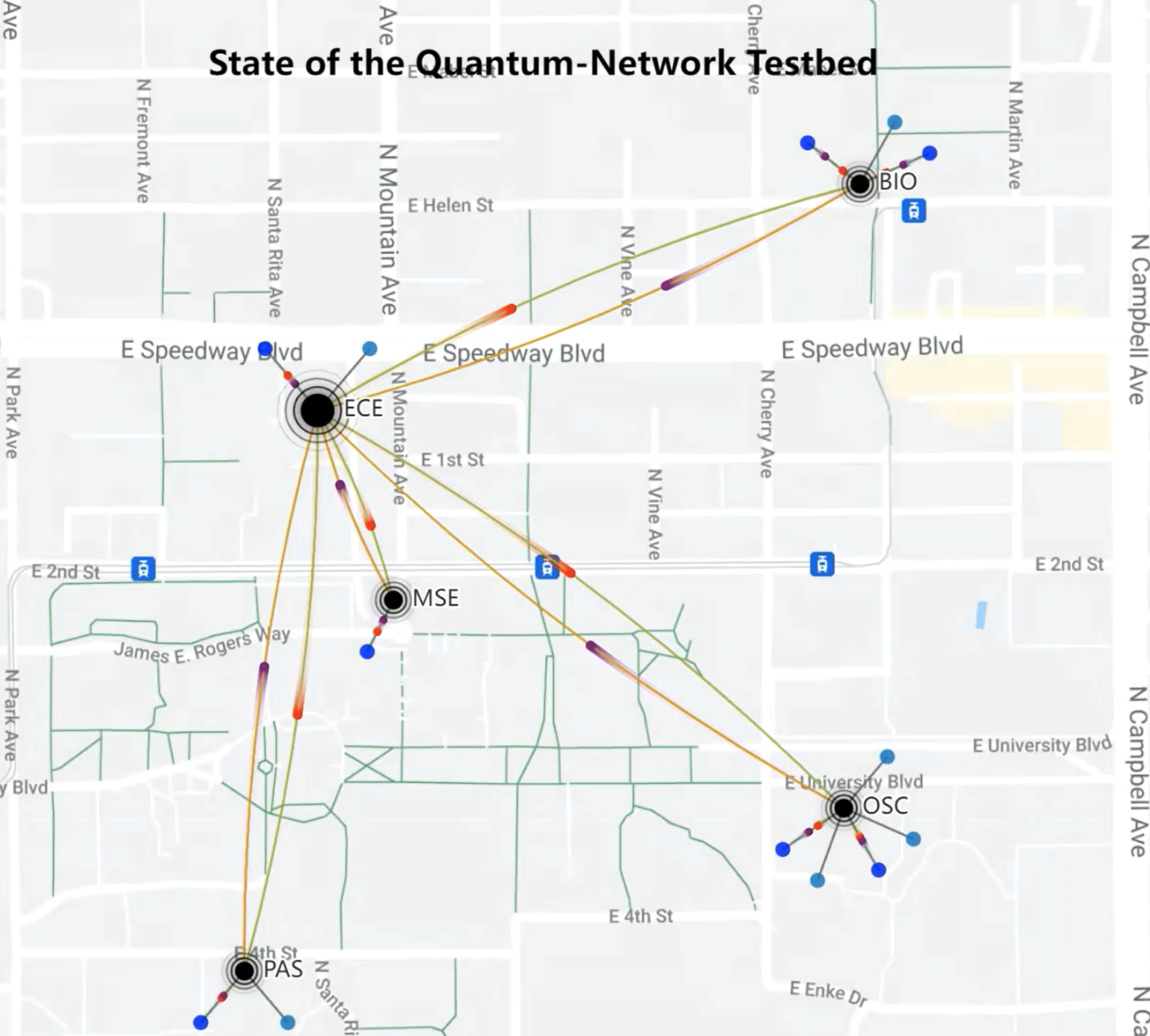Quantum network local agency software (web operation software)
English | 简体中文
Quagent is the shorthand of "Quantum Agent", a universal operation software for application in Quantum Local Network.
While it depends on some necessary hardware at the same time. Currently, the qugent-v1.0.0 is a development plan
aiming to facilitate multi-access research and teaching on quantum information experiments, initially for the demand
of the National Science Foundation (
NSF) Major Research Instrumentation (MRI) #1828132
award project. This operation software will be hopefully applied to the series of experimental platforms of
the Center for Quantum Networks at the University of Arizona. Our final goal is to provide a
universal technical prototype for quantum networks in terms of the local agent terminal.
We have been trying to enrich and improve Quagent's architecture.
Framework:
- Application cases: Native control with only Quagent, or co-operation with Agilent iLab operation software
- Functionalities: entangled photons and detected photons routing, real-time measurement of photons and data acquisition, resources reservation and allocation by time
- Soft-Hardware interface: serial communication for optical switches, Time Tagger API,
- Hardware Platform: 5 type of Entangled-Photon Sources channels (Entangled-Photon Sources generation experimental platform), 8 Single-Photon Detector channels (Superconducting Nanowire Single-Photon Detector), 5x16 optical/fiber switches, 8x8 optical/fiber switches
More details could be found in the manual for reference of developers.
Quanget itself provides a complete set of functionalities, including user registration, laboratory grouping, resource management, usage configures, data acquisition and real-time administrative monitoring and so on. The included self-contained database models and port mapping logics of Quagent ensures these functionalities and their interation. What one user shall care is just the hardware configuration of the laboratory he/she belongs to. After (registration and) login, the user can handle well with the user-friendly Web interface without much guidance.
A practical usage instance is described in the design document for reference.
Although Quagent can run independently in some internal laboratories at the University of Arizona, it is actually a technical prototype but not a released business software. And the independent project "Quanget" is mainly aimed to develop and test continuously. In the stable application scenarios of UA, Quagent is integrated with iLab operation software supported by Agilent Inc. Thus if you are a supported user of the iLab system of UA, you can begin to use it conveniently via iLab.
A demonstrative video is for reference.
In the backend administration, the real-time status of quantum network will be monitored:
For development and research necessity, downloading the last universal prototype software is from GitHub.
git clone git@github.com:Youngcius/quagent.gitUsers are encouraged to contact us through Github Issues or zhy@arizona.edu with general questions, bugs, and potential improvements. We hope to make quagent better together with the community!
Q: Where should I get to know more about Quagent?
A: The NSF MRI #1828132 award project description is a good illustration. You can also refer to our design document and user manual for more support. If you have more demand or cooperation willingness, please contact to the Quantum Information and Materials Group of UA.
Q: How can I get to start Quagent if I am faculty or student of UA?
A: You can contact ot related people at UA or get more information from the corresponding website.
Q: Can I use Quagent via iLab if I am not a faculty or student in UA?
A: Quagent is not a pure-software application. It's framework and application scenarios are closely dependent on corresponding hardware platforms. Currently it is applied to the serial systematically linked laboratories of UA. So if you are not a person in UA, there is no necessity for you to use it. But if you are a researcher in related fields, you can build your own hardware supports and modify Quagent accordingly if possible.
Quagent uses Apache-2.0 license.








